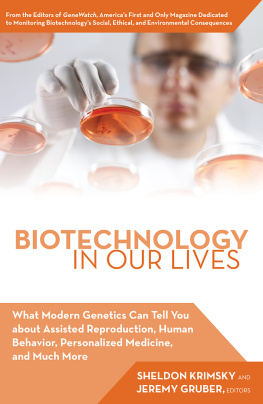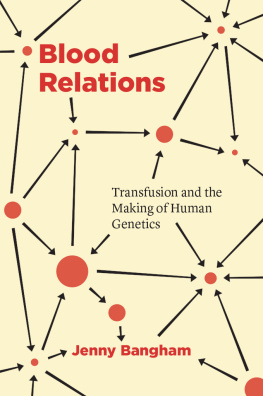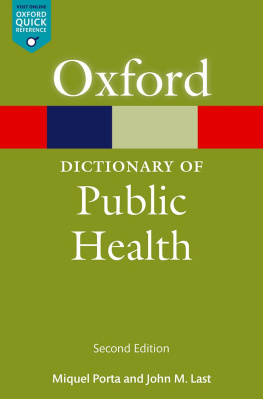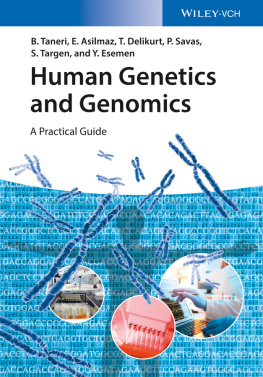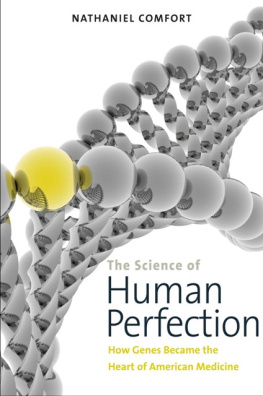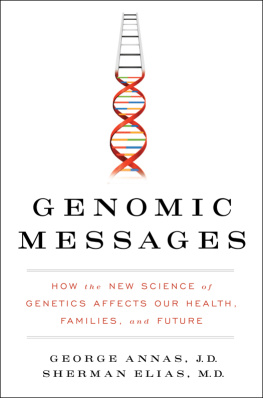
The New Genetics and the Publics Health
The rapid advancement of genetic science, fuelled by the Human Genome Project and other related initiatives, promises a new kind of public health practice based on the pre-detection of disease according to calculations of genetic risk. This book by two wellknown sociologists:
- explores the implications of the new genetics for public health as a body of knowledge and a domain of practice;
- assesses the impact of new genetic information and technologies on conceptions of health, illness, embodiment, self and citizenship;
- critically examines the complex discourses surrounding human genetics and public health;
- discusses the role of the media in framing debate about genetics, health and medicine.
The New Genetics and the Publics Health addresses the emerging social and political consequences of the new genetics and provides a stimulating critique of current research and practice in public health.
Alan Petersen is Professor in Sociology of Health and Illness at the University of Plymouth. Robin Bunton is Reader in Social Policy, University of Teesside.
The New Genetics and the Publics Health
Alan Petersen and Robin Bunton
First published 2002
by Routledge
11 New Fetter Lane, London EC4P 4EE
Simultaneously published in the USA and Canada
by Routledge
29 West 35th Street, New York, NY 10001
Routledge is an imprint of the Taylor & Francis Group
This edition published in the Taylor & Francis e-Library, 2003.
2002 Alan Petersen and Robin Bunton
All rights reserved. No part of this book may be reprinted or reproduced or utilised in any form or by any electronic, mechanical, or other means, now known or hereafter invented, including photocopying and recording, or in any information storage or retrieval system, without permission in writing from the publishers.
British Library Cataloguing in Publication Data
A catalogue record for this book is available from the British
Library
Library of Congress Cataloging in Publication Data
Petersen, Alan R., Ph. D.
The new genetics and the publics health/Alan Petersen and
Robin Bunton.
Includes bibliographical references and index.
1. Medical geneticsSocial aspects. 2. Human geneticsSocial
aspects. I. Bunton, Robin, 1954II. Title.
RB 155 .P48 2001
616'.042dc21
2001048171
ISBN 0-203-46364-1 Master e-book ISBN
ISBN 0-203-77188-5 (Adobe eReader Format)
ISBN 0-415-22141-2 (hbk)
ISBN 0-415-22142-0 (pbk)
Acknowledgements
Alan Petersen would like to thank the following people who have assisted by way of generously offering items of information: Dr Patricia Spallone, Dr Sarah Cunningham-Burley, Professor Peter Glasner, Dr Tom Shakespeare, Dr Christopher Newell, Dr Paul Martin, Dr Lene Koch, Dr Nina Hallowell, Professor Elizabeth Ettorre, Professor Nicholas Rose, Professor Peter Conrad, and Professor Waqar Ahmad. He wishes to thank delegates at the Ethos of Welfare Conference in Finland in August 2000, and at the BSA Medical Sociology Conference in York, UK, in September 2000, who provided feedback on some work in progress which provided the basis for some of his chapters. He is also grateful to participants at the Workshop on the Ethical, Social and Legal Implications of the Human Genome Project, held in Adelaide, South Australia, in December 2000, who offered numerous useful insights, and to Professor Riaz Hassan, who invited him to participate. Murdoch University was generous in offering a six-month period of study leave in 2000, which allowed him to write part of the book. Finally, he wishes to thank his partner, Ros Porter, who is a constant source of companionship and support.
Some of the material which appears in ), 1, 3 (1999): 25365.
Robin Bunton extends thanks to a number of people who have supported and discussed this project, including Pamela Abbott and members of the Sociology section in the School of Social Sciences, University of Teesside, who made it possible for him to take study leave to support the research for this project. Thanks, too, to Barbara Cox, who provided vital administrative support throughout (as well as a sense of humour) and to Paul Crawshaw for his interest and sharing of ideas and leads. Thanks to Gary Wickham and colleagues in the School of Social Inquiry, Murdoch University, Western Australia, for their support and debate at the time of researching this book. Thanks also to Ann Robertson and her colleagues at the University of Toronto, who provided interesting debate in the latter stages of this project, and similarly to Ron Labonte and his colleagues at the Universities of Regina and Saskatoon. Thanks to Richard Hardesty and Maggie Tebb for excellent food and feisty arguments over the period of writing. Finally, thanks to Lesley Jones for her continued intellectual support and sense of proportion.
Both Alan Petersen and Robin Bunton wish to thank Heather Gibson, who as previous Senior Editor at Routledge encouraged us to collaborate in the writing of this book. Edwina Welham, current Senior Editor, was generous in offering assistance during the final stages and in granting an extension for the completion of the manuscript.
Alan Petersen wishes to dedicate his contributions to this book to his father, Neil Petersen, who died as this book was being completed. Without his love and support, and that of his mother, Gwen Petersen, he would never have had the opportunity to write books.
Chapter 1
Introduction
The new genetics, health, and
the public
Alan Petersen
This book explores the applications of new genetic knowledge for the health of the public, and the way these are changing how we think about our bodies, ourselves, and society. It examines how genetics is shaping our conceptions of the natural and the normal, and what are seen as the possibilities for treatment, prevention, and cure. The impact of new genetic knowledge, we contend, extends from the local level to the global level. It not only affects how we, individually, view our bodies, our selves, and our families, but also shapes our social relations across national borders. New genetic knowledge is emerging in the context of, and is contributing to, a redefinition of the relationship between citizens and the state, accompanying the increasing liberalization of markets and transnational flows of information and economic exchanges. The findings of genetic research are being rapidly applied in practices of population screening, diagnostic testing, and counselling, and promise to revolutionize the treatment of disease through the development of new therapies and drugs, profoundly affecting personal and social life. Indeed, developments in this area bring into question the very notions of the person and society. In the book we identify the diverse imperatives associated with these new genetic technologies, and indicate how they are affecting the lives of everyone. We begin, in this chapter, by outlining the books perspective and guiding assumptions, and introducing the chapters that follow.
Our perspective can be described, broadly, as a sociocultural perspective, in that we examine the social and cultural contexts within which the field of public health genetics is emerging, and takes meaning. This sets it apart from the perspectives of medical genetics, preventive medicine, and much of bioethics, which dominate the literature on genetics and human health. In recent years, there has been an outpouring of new texts focusing on new genetic findings and their medical applications, and exploring the attendant ethical and legal implications. Much of this work has arisen against a background of recent gene-mapping initiatives such as the Human Genome Project (HGP), which are seen to give rise not only to medical possibilities of previously unimaginable dimensions, but also to major ethical and legal dilemmas. Although such work is often insightful and thought-provoking, it tends to leave unexamined the broader social and cultural contexts within which new genetic ideas arise, assume meaning, and are applied. Science is seen as essentially separate from, or outside, society rather than as a social product. Genetic knowledge is viewed as an outcome of scientists objective search for the facts, which are then taken up by, and impact on, society in various ways. There is little recognition of how culture affects the content and practice of science: what is defined as a problem, how research is undertaken, what counts as a fact, and how findings are communicated and applied. Questions concerning the power relations of science, and the relationship between power and knowledge, are left largely unexamined. That such work tends to be unreflective about, and uncritical of, science and its power relations is hardly surprising since it is contributed largely by scientists themselves, who have a vested interest in sustaining a particular definition of genetics and its benefits. However, non-scientists, including journalists who report on new genetic discoveries, also frequently share the assumption that science and society are essentially separate.


